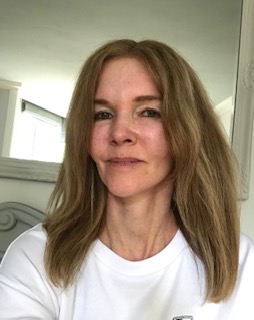Domestic abuse is often wrongly considered to be a younger person’s problem, with many support services tailoring their response towards a younger audience. Older victims are hugely underrepresented among domestic abuse support services, but this does not reflect the extent of the abuse they are suffering. Amongst older women, domestic abuse is a largely hidden crime and one where survivors often suffer systematic invisibility.
A report by Safe Lives based on research conducted between 2016 / 2017 uncovered some worrying statistics relating to domestic abuse in older people. It was concluded that the over 60’s experience abuse for twice as long as the under 60’s before accessing help. Older survivors are also more likely to be living with the perpetrator, even after accessing support, and are much less likely to attempt to leave the abusive relationship.
The reasons older survivors do not access support are wide ranging. We know they are less likely to identify their situation as abuse, especially the non-physical forms and the more subtle types of coercive control. When they were young, it was often considered acceptable for men to control their wives or partners, expect sex on demand and take charge of all finances. They were also brought up in an era where marriage was considered for life, and that their private lives should be kept behind closed doors. Rape within a marriage was not unlawful until 1991 and coercive control was not a criminal offence until 2015. Survivors often felt they should accept their abuse without complaint, and felt shame and self-blame if they considered seeking help.
Survivors may have reported abuse in the past, just to be told by police officers that it was only a domestic and that they needed to sort their own relationship issues out. Although times have changed, these older survivors may lack trust that things have improved and be reluctant to make reports of abuse.
Although domestic abuse is considered more seriously now than in times gone by, health care professionals are less inclined to identify it in older people. Health workers are still more likely to link injuries, confusion or depression to age related concerns than domestic abuse in this group. Because so few older survivors access domestic abuse services, it creates a myth that abuse amongst this group simply does not happen, and professionals who could potentially be supportive are blinded by this myth. This lack of recognition amongst health professionals is crucial given that disclosure of abuse is more likely if victims are offered repeated opportunities to do so.
The Domestic Abuse Act 2021 in its statutory guidance recognises the needs for support services to avoid making assumptions about a victim’s condition or health based on their age. There was acknowledgement that physical and mental health issues may be viewed as resulting from a person’s age and health, rather than enquiries being made about domestic abuse.
Issues of dependency in older abuse victims can be another barrier in preventing them from accessing help. Nearly half of over 60’s have a disability which can isolate them from support networks and also exacerbate vulnerability to harm. It is sometimes the case that an older victim is carer for the perpetrator, or the perpetrator cares for them. These issues can make it less easy for survivors to walk away from the relationship. Being cared for by an abuser raises a host of additional problems. It’s also difficult when the individual being cared for becomes the perpetrator, and medical issues such as chronic pain or dementia can exacerbate aggression. Physical vulnerabilities also makes older survivors more vulnerable when subjected to physical assaults.
Disability may also make older victims more vulnerable to the risk of adult family abuse. The SafeLives report found that 44% of older survivors were being abused by other than intimate family members, whereas this figure was 6% for the under 60 age group. Distinct issues can arise in adult family abuse. Adult ‘children’ may neglect their parents’ care needs in order to avoid costly care options that may impact on potential inheritance. Care packages are often set up, then a few days later, the adult child rings up saying mother has changed her mind and is refusing the care. It is extremely difficult for someone who is disabled and infirm to complain about abuse from their family, particularly their adult ‘children’. This group could not be more vulnerable.
Adult children, particularly those who are experiencing mental health or drug dependence can become abusive towards parents, and again this type of abuse is often motivated by financial gain and is generally restricted to older survivors. Abuse perpetrated by adult children is notoriously difficult to appropriately support. The survivor will commonly have serious difficulty in feeling able to report abuse by her adult child, she will generally feel very conflicted and put up with too much because she ultimately loves her ‘child’ and may unreasonably feel responsible for the way the child has turned out.
Because of their age, older survivors may have tolerated the abuse over a longer period of time than younger survivors. There is a phrase used for this – ‘domestic abuse grown old’. Some survivors may have been abused over a 50 or 60 year period. For these women, the impact can be much worse due to the length of time that they have suffered. In these women, significant mental health problems are often seen, together with various unhelpful coping strategies such as drug and alcohol abuse. It might be considered that the death of their partner may lead to a reprieve from the suffering, but by this time the damage cause is likely to be so significant that the work needed to recover from their trauma can be significant.
Domestic abuse amongst older survivors is a complex issue that requires a more tailored response from support services. There is a need for training amongst professionals who may have contact with this group. Not only are their particular needs often different from the needs of younger survivors, but the type of abuse they suffer and the family dynamics surrounding the abuse are often more complex and difficult to manage. It is important that we do all that we can to ensure that older survivors do not suffer in silence, unaware of the support that is now available to them.
Julie’s story
“Jack is my son, he is also an alcoholic. He has ‘wet brain’, this is a form of early dementia caused by alcohol abuse. Jack was sexually abused as a child by a male family member. I constantly blame myself for not protecting him from this. I didn’t know there was a danger but I still berate myself for going out that evening and allowing his uncle to babysit. I know that he drinks to mask his trauma from the sexual assault.
“Jack is in supported accommodation but will constantly come to my home when he needs money. I used to delude myself that he came to visit me, and asking for money was just incidental. But it’s been going on too long and I’m no longer under any illusions about the reasons for his visits. I’m on a state pension and need every penny, but I don’t feel able to refuse him because I feel sorry for him and the last time I refused, he pinned me down and yelled at me until I told him where my purse was. Some of the neighbours heard and called the police. He’d left by the time they arrived and I persuaded the police that it was just a disagreement – they accepted this.
“I sometimes wonder how much more of Jack’s abuse I can tolerate, I’m 79 now and have quite bad arthritis. It frightened me when Jack got physical, he’d not done that before. I worry about the future and an escalation of his abuse, but I don’t feel that I can seek help – Jack is my son and despite his behaviour, I love him.”
Margaret’s story
“I’ve been married to John for 55 years. He was fine until we married, and then he changed. I’ve never called it abuse because he’s never laid a finger on me. He shouts and name calls and controls pretty much everything. I’m deeply unhappy, always have been but I’ve never considered leaving him. You make your bed you lie in it as my mother would tell me. I guess a lot of women have it worse than me.
“Sometimes I wonder what life would have been like with a kind man. I think about this a lot. When I see couples exchanging loving looks or holding hands, I just watch for a while, if only. I enjoy watching romantic films for the same reason. But this is not my reality.
“I’m getting old and exhausted with it, especially the name calling, that never stops. I used to get out with my girlfriends, have a break from John but I’m his carer now so there’s no reprieve. Living like this now seems worse than ever and I’m very aware of getting old. After I’ve got him to bed in the evening, I’ll normally have a little drink, sometimes a few. I know I’m drinking too much but it helps me to cope and makes me feel at peace for a while.”
If you have found this blog helpful, please use the links below to find my books on Amazon.
One in Four Women – understanding men’s domestic abuse and violence against womenhttps://www.amazon.co.uk/dp/1739647912
Beyond the Break-up – understanding and surviving men’s domestic abuse and violence against women post-separation https://www.amazon.co.uk/dp/1739647920
Published 25 February 2024

